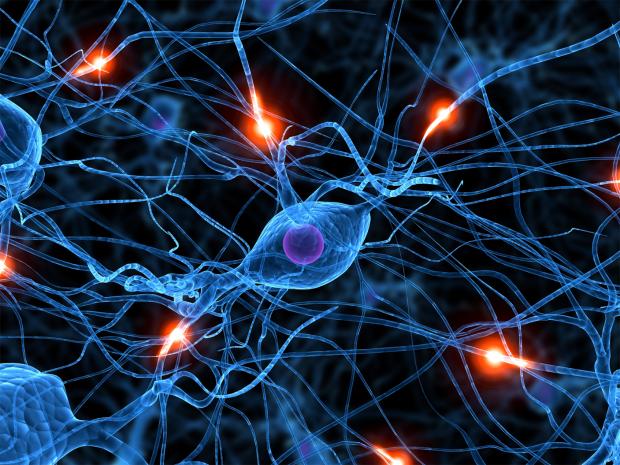- Academics
Chemical and Biomolecular Engineering, B.S.

As a chemical and biomolecular engineering major at the School of Engineering, you'll become part of a field that has contributed to the development of virtually every material common to modern life. Chemical and biomolecular engineers are involved with the production of plastics, pharmaceuticals, fertilizers, foodstuffs, synthetic rubber and rocket propellants. New technologies, from sensors to the production of bulk chemicals from renewable bio-resources, require the unique skills of chemical and biomolecular engineers.
The School of Engineering's Chemical and Biomolecular Engineering program is accredited by EAC of ABET and will provide you with a solid foundation in science and the engineering sciences. You will study advanced chemistry, thermodynamics, fluid dynamics, heat and mass transfer, multi-stage separation processes and other related areas. You will also work with professors who are among the leading researchers in their field.
Graduates may choose from a wide range of activities, including research, process and product development, design and supervision of the construction and operation of industrial plants, technical sales and services, consulting, management and teaching. Opportunities in chemical and biomolecular engineering are virtually unlimited.
About the Program
Program Educational Objectives
The Chemical and Biomolecular Engineering program prepares graduates who:
- creatively apply their knowledge and skills to a broad range of contemporary pursuits, taking into account industrial, environmental, economic, safety, global, diversity, and ethical considerations
- apply their technical, communication, and problem-solving skills to the pursuit of careers in the chemical, biochemical, energy and related industries or
- pursue advanced study in graduate programs in chemical engineering and related fields, and in professional programs such as medicine, business, and law
- work both independently and collaboratively to manage complex technical projects
- provide innovation, leadership, and inspiration in their chosen field, continually augmenting their understanding and expertise through formal and informal education
Student Outcomes
In support of its Educational Objectives, the Chemical and Biomolecular Engineering program fosters development of a broad range of conceptual, technical, and professional knowledge including:
(1). an ability to identify, formulate, and solve complex engineering problems by applying principles of engineering, science, and mathematics
(2). an ability to apply engineering design to produce solutions that meet specified needs with consideration of public health, safety, and welfare, as well as global, cultural, social, environmental, and economic factors
(3). an ability to communicate effectively with a range of audiences
(4). an ability to recognize ethical and professional responsibilities in engineering situations and make informed judgments, which must consider the impact of engineering solutions in global, economic, environmental, and societal contexts
(5). an ability to function effectively on a team whose members together provide leadership, create a collaborative and inclusive environment, establish goals, plan tasks, and meet objectives
(6). an ability to develop and conduct appropriate experimentation, analyze and interpret data, and use engineering judgment to draw conclusions
(7). an ability to acquire and apply new knowledge as needed, using appropriate learning strategies
(8). an ability to analyze and design chemical and biomolecular processes and systems.
Curriculum
Engineering design lies at the heart of the Chemical and Biomolecular Engineering major. As students progress through the curriculum and their conceptual knowledge increases, subsequent courses bring increased emphasis on design and the solution of complex, open ended, multifaceted problems. The curriculum culminates in a year-long, senior capstone design sequence in which students design multi-unit processes while accounting for engineering, technical, regulatory, safety, environmental, ethical, and economic considerations.
Degree Requirements
In addition to the School's requirement of a minimal 2.0 GPA for graduation, students must meet academic standards of the Chemical and Biomolecular Engineering program. These include a requirement of a minimal 2.5 average GPA in the below six core chemical engineering subjects. Students that fail to meet this requirement will have to retake some of these courses and may face delayed graduation.
- 4 Credits Analysis of Chemical and Biomolecular Processes CBE-UY 2124
- This course prepares students to formulate and solve material and energy balances on chemical and biomolecular process systems and lays the foundation for subsequent courses in thermodynamics, unit operations, kinetics and process dynamics, and control. The course introduces the fundamental engineering approach to problem solving: breaking down a process into its components, establishing the relations between known and unknown process variables, assembling the information needed to solve for the unknowns and, finally, obtaining the solution using relevant computational methods.
Prerequisites: CM-UY 1003 and MA-UY 1024 (B- or better). - 3 Credits Chemical and Biomolecular Engineering Thermodynamics CBE-UY 3153
- The course covers thermodynamics of flow systems. Topics include properties of fluids with advanced equations of state; properties of non-ideal mixtures; activity-coefficient models for non-electrolyte and electrolyte solutions; phase-equilibrium calculations at low and elevated pressures by computer procedures; and chemical reaction equilibria.
Prerequisites: MA-UY 2034 - 3 Credits Transport I CBE-UY 3313
- The course builds understanding of mass and heat transfer, and introduces engineering aspects of transport. Topics in mass transfer include diffusion-limited reactions with applications in biomolecular systems, transport in porous media, and mass transfer across membranes with applications in chemical and biomolecular systems. Topics in heat transfer include the basic mechanisms of conduction and convection. Topics in engineering aspects of transport include flow in closed conduits, heat-transfer equipment, and examples of simultaneous heat and mass transfer.
Prerequisites: MA-UY 2132 or MA-UY 2034. - 3 Credits Kinetics and Reactor Design CBE-UY 3223
- This course provides the fundamentals of thermodynamics and kinetics of chemical and biomolecular reactions and the development of skills to analyze and design reactor systems. Topics include homogeneous and heterogeneous reactors of various types, catalyzed and non-catalyzed reactors, and the design of single and cascaded chemical and bio-reactors. Safety information pertinent to reactor design, including runaway reactions and several case studies, is also covered.
Prerequisites: CBE-UY 3153, CBE-UY 3313. - 3 Credits Chemical & Biomolecular Engineering Separations CBE-UY 3233
- The course introduces processes for chemical and biomolecular separations. Topics include thermodynamics of separation processes, and the analysis and design of processes such as distillation, absorption, extraction and crystallization. Analytical and computer techniques are emphasized.
Prerequisites: CBE-UY 3153, CBE-UY 3313. - 3 Credits Transport II CBE-UY 3323
- This course establishes fundamental concepts in momentum transfer, fluid mechanics, fluid statics, and their applications in chemical and biomolecular systems. Topics include viscosity, laminar and turbulent fluid flow, macroscopic (integral) balances on finite control volumes of fluids (determination of inflow, outflow quantities), and microscopic (differential) balances on infinitesimal volumes of fluids (determination of fluid velocity profiles and pressure profiles). Students enrolled in this course will learn about Newtonian and non-Newtonian fluids and the concepts of viscosity and stress tensor; understand molecular origins of momentum transport and its macroscopic mathematical description via vector, tensor algebra, and calculus; they will learn how to non dimensionalize and solve the Navier Stokes equations and be able to use geometric and dynamic similarity and dimensionless numbers to solve problems that are of interest to chemical engineers.
Prerequisite: MA-UY 2034 and MA-UY 2114.
Undergraduate Courses
- 2 Credits Introduction to Chemical & Biomolecular Engineering CBE-UY 1002
- This course introduces dynamic modeling of chemical processes, their automated control, and associated hardware including controllers, actuators, and sensors. Dynamic models of chemical processes are developed, and the modeling and optimization of common control strategies including feed-back, feed-forward, and cascaded loops is described, as are processes characterized by multiple inputs and outputs. Process safety topics and strategies for management of process hazards are also covered.
Prerequisites: CM-UY 1003 and First-year standing - 4 Credits Analysis of Chemical and Biomolecular Processes CBE-UY 2124
- This course prepares students to formulate and solve material and energy balances on chemical and biomolecular process systems and lays the foundation for subsequent courses in thermodynamics, unit operations, kinetics and process dynamics, and control. The course introduces the fundamental engineering approach to problem solving: breaking down a process into its components, establishing the relations between known and unknown process variables, assembling the information needed to solve for the unknowns and, finally, obtaining the solution using relevant computational methods.
Prerequisites: CM-UY 1003 and MA-UY 1024 (B- or better). - 3 Credits Chemical Engineering Computation CBE-UY 2233
- The course introduces applications of computer programming and numerical methods of interest to chemical engineers, based on examples taken from across the chemical engineering curriculum. The course covers basic programming logic and design, as well as applications to plotting, curve fitting, statistical analysis, solutions of algebraic and differential equations, and optimization problems.
Prerequisites: MA-UY 2034 - 3 Credits Chemical and Biomolecular Engineering Thermodynamics CBE-UY 3153
- The course covers thermodynamics of flow systems. Topics include properties of fluids with advanced equations of state; properties of non-ideal mixtures; activity-coefficient models for non-electrolyte and electrolyte solutions; phase-equilibrium calculations at low and elevated pressures by computer procedures; and chemical reaction equilibria.
Prerequisites: MA-UY 2034 - 3 Credits Transport I CBE-UY 3313
- The course builds understanding of mass and heat transfer, and introduces engineering aspects of transport. Topics in mass transfer include diffusion-limited reactions with applications in biomolecular systems, transport in porous media, and mass transfer across membranes with applications in chemical and biomolecular systems. Topics in heat transfer include the basic mechanisms of conduction and convection. Topics in engineering aspects of transport include flow in closed conduits, heat-transfer equipment, and examples of simultaneous heat and mass transfer.
Prerequisites: MA-UY 2132 or MA-UY 2034. - 3 Credits Polymeric Materials CBE-UY 3173
- The course examines processing, structure, properties and applications of polymers as engineering materials, including renewable-resource based biopolymers. Topics include fundamentals of processing-morphology/property correlations in materials, basic concepts of viscoelasticity, fracture behavior, and thermal and electrical properties of engineering polymeric materials.
Prerequisite: MA-UY 2034, CM-UY 2213 and CBE-UY 2124. - 3 Credits Chemical & Biomolecular Engineering Separations CBE-UY 3233
- The course introduces processes for chemical and biomolecular separations. Topics include thermodynamics of separation processes, and the analysis and design of processes such as distillation, absorption, extraction and crystallization. Analytical and computer techniques are emphasized.
Prerequisites: CBE-UY 3153, CBE-UY 3313. - 3 Credits Kinetics and Reactor Design CBE-UY 3223
- This course provides the fundamentals of thermodynamics and kinetics of chemical and biomolecular reactions and the development of skills to analyze and design reactor systems. Topics include homogeneous and heterogeneous reactors of various types, catalyzed and non-catalyzed reactors, and the design of single and cascaded chemical and bio-reactors. Safety information pertinent to reactor design, including runaway reactions and several case studies, is also covered.
Prerequisites: CBE-UY 3153, CBE-UY 3313. - 3 Credits Transport II CBE-UY 3323
- This course establishes fundamental concepts in momentum transfer, fluid mechanics, fluid statics, and their applications in chemical and biomolecular systems. Topics include viscosity, laminar and turbulent fluid flow, macroscopic (integral) balances on finite control volumes of fluids (determination of inflow, outflow quantities), and microscopic (differential) balances on infinitesimal volumes of fluids (determination of fluid velocity profiles and pressure profiles). Students enrolled in this course will learn about Newtonian and non-Newtonian fluids and the concepts of viscosity and stress tensor; understand molecular origins of momentum transport and its macroscopic mathematical description via vector, tensor algebra, and calculus; they will learn how to non dimensionalize and solve the Navier Stokes equations and be able to use geometric and dynamic similarity and dimensionless numbers to solve problems that are of interest to chemical engineers.
Prerequisite: MA-UY 2034 and MA-UY 2114. - 3 Credits Engineering Laboratory I CBE-UY 4113
- This course introduces the performance of experiments in unit operations, transport processes and unit processes. Students analyze and design experiments to meet stated objectives. Results are presented in written and oral form.
Prerequisite: CBE-UY 3233. - 3 Credits Process Dynamics and Control CBE-UY 4143
- This course introduces dynamic modeling of chemical processes, their automated control, and associated hardware including controllers, actuators, and sensors. Dynamic models of chemical processes are developed, and the modeling and optimization of common control strategies including feed-back, feed-forward, and cascaded loops is described, as are processes characterized by multiple inputs and outputs. Process safety topics and strategies for management of process hazards are also covered.
Prerequisites: CBE-UY 3223. - 3 Credits Chemical and Biomolecular Process Design I CBE-UY 4163
- This is a capstone course and thus requires usage of all knowledge accrued so far in the chemical engineering curriculum. In this course, students will learn the elements involved in process ideation, scale-up, and large-scale implementation. Students will study usage of process diagrams (PFDs, P&IDs, BFDs, etc.), energy optimization, process safety, capital costs and equipment cost estimates. Coursework will include discussions of current socio-economic and political pressures as well as safety, environmental and ethical considerations involved in design; these aspects are expected to be integrated into student project work. Extensive usage of AspenPlus will be expected in the final design project. The course will employ several team-focused projects to advance these concepts and will culminate in a final design project that will continue in the spring semester.
Prerequisites: CBE-UY 3223 and CBE-UY 3233 - 3 Credits Engineering Laboratory II CBE-UY 4213
- This course deals with continued experiments in unit operations, transport processes and process control. Students analyze and design experiments to meet stated objectives. Results are presented in writing and orally.
Prerequisites: CBE-UY 4113 and CBE-UY 4143. - 3 Credits Biochemical Engineering CBE-UY 4223
- This course covers applications of chemical engineering concepts in biochemical and biological systems. Topics include biochemical & bioprocess engineering; enzyme kinetics; cellular control systems; genetic and protein engineering; metabolism; stoichiometry and metabolic engineering; cell growth kinetics; bioreactor design & operation; heat and mass transfer in biological systems; and biological product purification & characterization.
Prerequisites: CBE-UY 3223, CBE-UY 3313, or adviser's permission. - 3 Credits Chemical and Biomolecular Process Design II CBE-UY 4263
- This course is a continuation of CBE-UY 4163. Students will continue working in teams on the capstone design project selected towards the end of the fall semester. Students will be expected to regularly meet with the instructor to report on their progress. The design teams will also compile a thorough final engineering report and prepare various presentations. Teams will make extensive use of the AspenPlus suite in creating their processes. The course also includes a series of seminars to be delivered by industry leaders in the areas of process safety, waste mitigation, environmental impact studies, human health considerations, regulatory and enforcement practices, and process engineering.
Prerequisites: CBE-UY 4163 and CBE-UY 4143.
Sample Course Schedule
This schedule lists courses in the Chemical and Biomolecular Engineering major, and their typical sequence of completion.
First Year
Fall Semester
- 4 Credits Calculus I for Engineers MA-UY 1024
- This course covers: Library of Functions, functions of one variable. Limits, derivatives of functions defined by graphs, tables and formulas, differentiation rules for power, polynomial, exponential and logarithmic functions, derivatives of trigonometric functions, the product and quotient rules, the chain rule, applications of the chain rule, maxima and minima, optimization. The definite integral, the Fundamental Theorem of Calculus and interpretations, theorems about definite integrals, anti-derivatives.
Prerequisite: Placement Exam or MA-UY 914
Corequisite: EX-UY 1 - 3 Credits General Chemistry for Engineers CM-UY 1003
- This is a one-semester introductory lecture course in general chemistry. It covers chemical equations, stoichiometry, thermodynamics, gases, atomic and molecular structure, periodic table, chemical bonding, states of matter, chemical equilibrium, organic, inorganic and polymeric materials and electrochemistry. It is a foundation course for most engineering and science majors.
Corequisite: EX-UY 1 - 1 Credits General Chemistry for Engineers Laboratory CM-UY 1001
- This is a one-semester introductory laboratory course in general chemistry. It covers chemical equations, stoichiometry, thermodynamics, gases, atomic and molecular structure, periodic table, chemical bonding, states of matter, chemical equilibrium, organic, inorganic and polymeric materials and electrochemistry. It is a foundation course for most engineering and science majors.
Co-requisites: CM-UY 1003 - 4 Credits Writing As Inquiry EXPOS-UA 1
- This foundational writing course is required for CAS, Nursing, Social Work,
Steinhardt and Tandon incoming undergraduates. "Writing the Essay''
provides instruction and practice in critical reading, creative and logical
thinking, and clear, persuasive writing. Students learn to analyze and
interpret written texts, to use texts as evidence, to develop ideas, and to
write exploratory and argumentative essays. Exploration, inquiry,
reflection, analysis, revision, and collaborative learning are emphasized. - EG-UY 1003 Please refer to the bulletin for more information
Spring Semester
- 4 Credits Calculus II for Engineers MA-UY 1124
- This course covers techniques of integration, introduction to ordinary differential equations, improper integrals, numerical methods of integration, applications of integration, sequences, series, power series, approximations of functions via Taylor polynomials, Taylor series, functions of two variables, graphs of functions of two variables, contour diagrams, linear functions, functions of three variables.
Prerequisites: MA-UY 1024 or MA-UY 1324
Corequisite: EX-UY 1. - 3 Credits Introduction to Cell and Molecular Biology BMS-UY 1003
- The course covers the fundamentals of biology with emphasis on cell and molecular biology. The course material includes introduction to biomolecules and bioenergetics, basic organization and functioning of living cells and general principles of genetics and reproduction.
- 1 Credits Introduction to Cell and Molecular Biology Laboratory BMS-UY 1001
- This laboratory accompanies the lecture course BMS-UY 1003 Introduction to Cell and Molecular Biology. This laboratory course is required for BMS and CBE majors taking BMS-UY 1003, but is optional for other majors.
Co-requisite: BMS-UY 1003 - 2 Credits Introduction to Chemical & Biomolecular Engineering CBE-UY 1002
- This course introduces dynamic modeling of chemical processes, their automated control, and associated hardware including controllers, actuators, and sensors. Dynamic models of chemical processes are developed, and the modeling and optimization of common control strategies including feed-back, feed-forward, and cascaded loops is described, as are processes characterized by multiple inputs and outputs. Process safety topics and strategies for management of process hazards are also covered.
Prerequisites: CM-UY 1003 and First-year standing - 4 Credits The Advanced College Essay EXPOS-UA 2
- The course follows Writing the Essay (EW 1013) and provides advanced instruction in analyzing and interpreting written texts from a variety of academic disciplines, using written texts as evidence, developing ideas, and writing argumentative essays. It stresses analysis, argument, reflection, revision, and collaborative learning.
Prerequisite(s): EW 1013 - 3 Credits Mechanics PH-UY 1013
- This course is the first of a three-semester lecture sequence in general physics for science and engineering students. Motion of particles and systems of particles. One-dimensional motion. Vectors and two-dimensional motions. Forces and acceleration. Conservation of energy and momentum. Rotations. The free and driven harmonic oscillator. Gravitation. (This class meets four hours per week for lectures and recitation.)
Prerequisites: MA-UY 1024 or an approved equivalent. Corequisites: MA-UY 1124 or approved equivalent, and EX-UY 1
Second Year
Fall Semester
- 4 Credits Linear Algebra and Differential Equations MA-UY 2034
- MA-UY 2034 is an introduction to ordinary differential equations and linear algebra. The course develops the techniques for the analytic and numeric solutions of ordinary differential equations (and systems) that are widely used in modern engineering and science. Linear algebra is used as a tool for solving systems of linear equations as well as for understanding the structure of solutions to linear (systems) of differential equations. Topics covered include the fundamental concepts of linear algebra such as Gaussian elimination, matrix theory, linear transformations, vector spaces, subspaces, basis, eigenvectors, eigenvalues and the diagonalization of matrices, as well as the techniques for the analytic and numeric solutions of ordinary differential equations (and systems) that commonly appear in modern engineering and science.
Prerequisite: MA-UY 1124 or MA-UY 1424. Note: Not open to students who have taken MA-UY 1044 or MA-UY 3054 or MA-UY 3083 or MA-UY 4204. - 3 Credits Electricity, Magnetism, & Fluids PH-UY 2023
- This is the second course of a three-semester lecture sequence in general physics for science and engineering students. Fluids at rest and in motion. An introduction to electric and magnetic forces and fields. Electric charge density. Electric fields from simple charge distributions. Electric potential. Capacitance. Magnetic forces. Magnetic field from a current loop. Inductance. Magnetism in matter. Current and resistance. (This class meets four hours per week for lectures and recitation.)
Prerequisites: PH-UY 1013 and MA-UY 1124 or an approved equivalent. Co-requisite: EX-UY 1 - 1 Credits General Physics Laboratory I PH-UY 2121
- PH-UY 2121 General Physics Laboratory I (0.5:1:0:1). An introductory level experimental course. Fundamental laboratory experiments in classical mechanics and electrostatics. Stresses basic experimental techniques, error analysis, and written presentation of experiment results. Experiments require progressively more detailed and sophisticated analysis. This laboratory class meets for three hours on alternate weeks.
Prerequisites: PH-UY 1013 and MA-UY 1124 or equivalent. Co-requisite: PH-UY 2023. - 3 Credits Organic Chemistry I CM-UY 2213
- This course covers chemistry of organic molecules: structure, nomenclature, properties and reactions of carbon compounds with emphasis on aliphatic compounds. It also introduces reaction mechanisms and stereochemistry.
Prerequisite: CM-UY 1004 or CM-UY 1024. Co-Requisite: EX-UY 1 - 4 Credits Analysis of Chemical and Biomolecular Processes CBE-UY 2124
- This course prepares students to formulate and solve material and energy balances on chemical and biomolecular process systems and lays the foundation for subsequent courses in thermodynamics, unit operations, kinetics and process dynamics, and control. The course introduces the fundamental engineering approach to problem solving: breaking down a process into its components, establishing the relations between known and unknown process variables, assembling the information needed to solve for the unknowns and, finally, obtaining the solution using relevant computational methods.
Prerequisites: CM-UY 1003 and MA-UY 1024 (B- or better).
Spring Semester
- 4 Credits Calculus III: Multi-dimensional Calculus MA-UY 2114
- Vectors in the plane and space. Partial derivatives with applications, especially Lagrange multipliers. Double and triple integrals. Spherical and cylindrical coordinates. Surface and line integrals. Divergence, gradient, and curl. Theorems of Gauss and Stokes.
Prerequisite: MA-UY 1124 or MA-UY 1424. Anti-requisite: MA-UY 2514 - CM-UY 2614 Please refer to the bulletin for more information
- 3 Credits Organic Chemistry II CM-UY 2223
- This course continues CM-UY 2213 and emphasizes finding the principles of organic chemistry in industrial practice and biochemical mechanisms. It introduces instrumental methods of analysis and identification.
Prerequisite: CM-UY 2213. Co-requisite EX-UY 1 - 3 Credits Chemical Engineering Computation CBE-UY 2233
- The course introduces applications of computer programming and numerical methods of interest to chemical engineers, based on examples taken from across the chemical engineering curriculum. The course covers basic programming logic and design, as well as applications to plotting, curve fitting, statistical analysis, solutions of algebraic and differential equations, and optimization problems.
Prerequisites: MA-UY 2034 - 3 Credits Waves, Optics, & Thermodynamics PH-UY 2033
- This is the third course of a three-semester lecture sequence in general physics for science and engineering students. Water, sound and electromagnetic waves. Reflection, scattering and absorption. Standing waves and spectra. Superposition, diffraction and beats. Geometrical optics. Introduction to thermodynamics; temperature, heat, and entropy. (This class meets four hours per week for lectures and recitation.)
Prerequisites: PH-UY 2121 and PH-UY 2023. Co-requisites: EX-UY 1. - 1 Credits General Physics Laboratory II PH-UY 2131
- PH 2131 General Physics Laboratory II (0.5:1:0:1). The second part of the introductory physics laboratory program. Fundamental laboratory experiments in E&M, waves, optics, and thermodynamics. Stresses experimental models and design, error and data analysis. This laboratory class meets for three hours on alternate weeks.
Prerequisites: PH-UY 2121 and PH-UY 2023. Corequisite: PH-UY 2033
Third Year
Fall Semester
- 3 Credits Polymeric Materials CBE-UY 3173
- The course examines processing, structure, properties and applications of polymers as engineering materials, including renewable-resource based biopolymers. Topics include fundamentals of processing-morphology/property correlations in materials, basic concepts of viscoelasticity, fracture behavior, and thermal and electrical properties of engineering polymeric materials.
Prerequisite: MA-UY 2034, CM-UY 2213 and CBE-UY 2124. - 3 Credits Chemical and Biomolecular Engineering Thermodynamics CBE-UY 3153
- The course covers thermodynamics of flow systems. Topics include properties of fluids with advanced equations of state; properties of non-ideal mixtures; activity-coefficient models for non-electrolyte and electrolyte solutions; phase-equilibrium calculations at low and elevated pressures by computer procedures; and chemical reaction equilibria.
Prerequisites: MA-UY 2034 - 3 Credits Transport I CBE-UY 3313
- The course builds understanding of mass and heat transfer, and introduces engineering aspects of transport. Topics in mass transfer include diffusion-limited reactions with applications in biomolecular systems, transport in porous media, and mass transfer across membranes with applications in chemical and biomolecular systems. Topics in heat transfer include the basic mechanisms of conduction and convection. Topics in engineering aspects of transport include flow in closed conduits, heat-transfer equipment, and examples of simultaneous heat and mass transfer.
Prerequisites: MA-UY 2132 or MA-UY 2034.
HuSS elective
Free elective
Spring Semester
- 3 Credits Chemical & Biomolecular Engineering Separations CBE-UY 3233
- The course introduces processes for chemical and biomolecular separations. Topics include thermodynamics of separation processes, and the analysis and design of processes such as distillation, absorption, extraction and crystallization. Analytical and computer techniques are emphasized.
Prerequisites: CBE-UY 3153, CBE-UY 3313. - 3 Credits Kinetics and Reactor Design CBE-UY 3223
- This course provides the fundamentals of thermodynamics and kinetics of chemical and biomolecular reactions and the development of skills to analyze and design reactor systems. Topics include homogeneous and heterogeneous reactors of various types, catalyzed and non-catalyzed reactors, and the design of single and cascaded chemical and bio-reactors. Safety information pertinent to reactor design, including runaway reactions and several case studies, is also covered.
Prerequisites: CBE-UY 3153, CBE-UY 3313. - 3 Credits Transport II CBE-UY 3323
- This course establishes fundamental concepts in momentum transfer, fluid mechanics, fluid statics, and their applications in chemical and biomolecular systems. Topics include viscosity, laminar and turbulent fluid flow, macroscopic (integral) balances on finite control volumes of fluids (determination of inflow, outflow quantities), and microscopic (differential) balances on infinitesimal volumes of fluids (determination of fluid velocity profiles and pressure profiles). Students enrolled in this course will learn about Newtonian and non-Newtonian fluids and the concepts of viscosity and stress tensor; understand molecular origins of momentum transport and its macroscopic mathematical description via vector, tensor algebra, and calculus; they will learn how to non dimensionalize and solve the Navier Stokes equations and be able to use geometric and dynamic similarity and dimensionless numbers to solve problems that are of interest to chemical engineers.
Prerequisite: MA-UY 2034 and MA-UY 2114.
HuSS elective
Free elective
Fourth Year
Fall Semester
- 3 Credits Engineering Laboratory I CBE-UY 4113
- This course introduces the performance of experiments in unit operations, transport processes and unit processes. Students analyze and design experiments to meet stated objectives. Results are presented in written and oral form.
Prerequisite: CBE-UY 3233. - 3 Credits Process Dynamics and Control CBE-UY 4143
- This course introduces dynamic modeling of chemical processes, their automated control, and associated hardware including controllers, actuators, and sensors. Dynamic models of chemical processes are developed, and the modeling and optimization of common control strategies including feed-back, feed-forward, and cascaded loops is described, as are processes characterized by multiple inputs and outputs. Process safety topics and strategies for management of process hazards are also covered.
Prerequisites: CBE-UY 3223. - 3 Credits Chemical and Biomolecular Process Design I CBE-UY 4163
- This is a capstone course and thus requires usage of all knowledge accrued so far in the chemical engineering curriculum. In this course, students will learn the elements involved in process ideation, scale-up, and large-scale implementation. Students will study usage of process diagrams (PFDs, P&IDs, BFDs, etc.), energy optimization, process safety, capital costs and equipment cost estimates. Coursework will include discussions of current socio-economic and political pressures as well as safety, environmental and ethical considerations involved in design; these aspects are expected to be integrated into student project work. Extensive usage of AspenPlus will be expected in the final design project. The course will employ several team-focused projects to advance these concepts and will culminate in a final design project that will continue in the spring semester.
Prerequisites: CBE-UY 3223 and CBE-UY 3233
HuSS elective
Free elective
Spring Semester
- 3 Credits Engineering Laboratory II CBE-UY 4213
- This course deals with continued experiments in unit operations, transport processes and process control. Students analyze and design experiments to meet stated objectives. Results are presented in writing and orally.
Prerequisites: CBE-UY 4113 and CBE-UY 4143. - 3 Credits Biochemical Engineering CBE-UY 4223
- This course covers applications of chemical engineering concepts in biochemical and biological systems. Topics include biochemical & bioprocess engineering; enzyme kinetics; cellular control systems; genetic and protein engineering; metabolism; stoichiometry and metabolic engineering; cell growth kinetics; bioreactor design & operation; heat and mass transfer in biological systems; and biological product purification & characterization.
Prerequisites: CBE-UY 3223, CBE-UY 3313, or adviser's permission. - 3 Credits Chemical and Biomolecular Process Design II CBE-UY 4263
- This course is a continuation of CBE-UY 4163. Students will continue working in teams on the capstone design project selected towards the end of the fall semester. Students will be expected to regularly meet with the instructor to report on their progress. The design teams will also compile a thorough final engineering report and prepare various presentations. Teams will make extensive use of the AspenPlus suite in creating their processes. The course also includes a series of seminars to be delivered by industry leaders in the areas of process safety, waste mitigation, environmental impact studies, human health considerations, regulatory and enforcement practices, and process engineering.
Prerequisites: CBE-UY 4163 and CBE-UY 4143.
HuSS elective
Free elective





